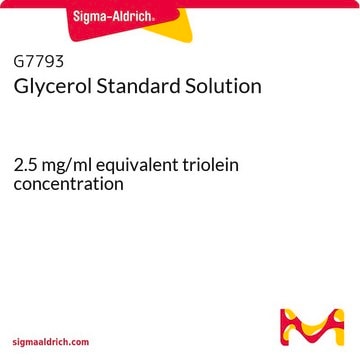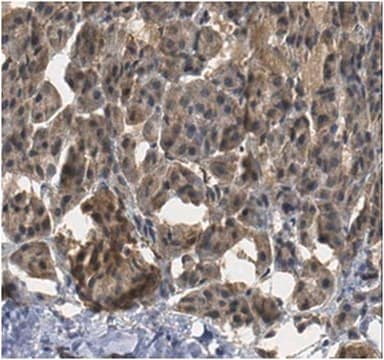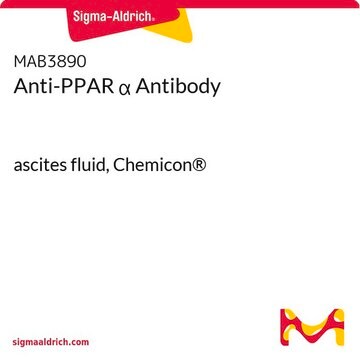FG0100
Free Glycerol Determination Kit
1 kit sufficient for 1000 reactions
Synonym(s):
Triglyceride and Free Glycerol Kits and Reagents
About This Item
Recommended Products
Quality Level
usage
kit sufficient for 1000 reactions
detection method
colorimetric
storage temp.
2-8°C
Looking for similar products? Visit Product Comparison Guide
General description
Application
Suitability
Linkage
Signal Word
Danger
Hazard Statements
Precautionary Statements
Hazard Classifications
Acute Tox. 4 Oral - Aquatic Acute 1 - Aquatic Chronic 1 - Eye Dam. 1 - Skin Irrit. 2
Storage Class Code
10 - Combustible liquids
Certificates of Analysis (COA)
Search for Certificates of Analysis (COA) by entering the products Lot/Batch Number. Lot and Batch Numbers can be found on a product’s label following the words ‘Lot’ or ‘Batch’.
Already Own This Product?
Find documentation for the products that you have recently purchased in the Document Library.
Articles
Lipid Induced Insulin Resistance
Our team of scientists has experience in all areas of research including Life Science, Material Science, Chemical Synthesis, Chromatography, Analytical and many others.
Contact Technical Service






